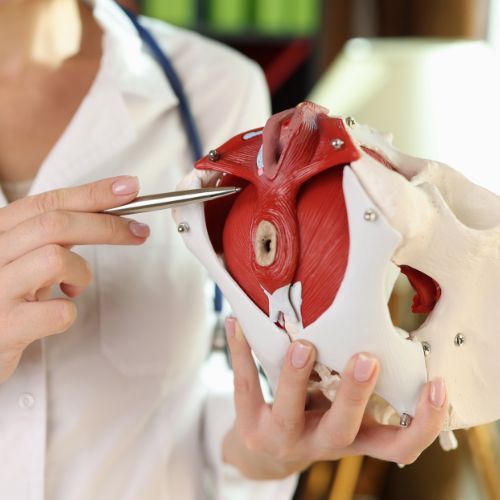By Kylie Conway
•
May 14, 2025
Understanding the Pelvic Floor: What It Is and Why It Matters The pelvic floor is a vital yet often overlooked part of our body. It plays a significant role in supporting several important functions, from bladder control to sexual health. In this blog, we’ll explore what the pelvic floor is, its functions, and why it’s essential for overall well-being. What is the Pelvic Floor? The pelvic floor refers to a group of muscles, ligaments, and tissues that stretch like a hammock across the bottom of the pelvis. It forms the base of the abdomen and supports the bladder, uterus, rectum, and small intestine. Think of it as a supportive structure that holds these organs in place, ensuring that they function properly. These muscles are responsible for several key functions, including: Supporting pelvic organs: The pelvic floor muscles help keep the bladder, uterus, rectum, and small intestine from sagging or shifting. Controlling urination and bowel movements: The pelvic floor muscles help control the release of urine and feces. When the muscles are healthy, they can help you hold and release waste at appropriate times. Sexual health: These muscles play a role in sexual arousal and orgasm. In both men and women, a strong pelvic floor can enhance sexual experience and satisfaction. Childbirth support: In women, the pelvic floor muscles help during childbirth by assisting in the delivery process. Why is the Pelvic Floor Important? The pelvic floor is crucial for maintaining proper function in several areas of life. When these muscles weaken or become damaged, it can lead to a variety of issues, such as: Urinary Incontinence: Weak pelvic floor muscles can lead to difficulty controlling urination, causing leakage, especially when coughing, laughing, or exercising. Pelvic Organ Prolapse (POP): If the pelvic floor muscles are too weak to support the pelvic organs, they can slip out of place, leading to conditions like bladder prolapse or uterine prolapse. Constipation: A weak pelvic floor can make it harder to control bowel movements, potentially leading to constipation. Pain During Sex: A tense or weak pelvic floor can cause discomfort or pain during intercourse. Postpartum Recovery: After childbirth, the pelvic floor may be weakened, leading to issues with incontinence or prolapse symptoms. How to Keep Your Pelvic Floor Healthy Maintaining pelvic floor health is essential for both men and women, and there are several ways to strengthen and care for these muscles: Pelvic Floor Exercises (Kegel Exercises): Kegels are exercises that target and strengthen the pelvic floor muscles. To perform them, simply contract the muscles you would use to stop urination and hold for a few seconds, then release. Regular practice can help improve muscle tone and control. Avoid Straining: Straining during bowel movements or lifting heavy objects can weaken the pelvic floor muscles. Ensure you use proper technique when lifting, and try to prevent constipation by eating fiber-rich foods and drinking plenty of water. Maintain a Healthy Weight: Excess weight puts added pressure on the pelvic floor, so maintaining a healthy weight can reduce strain and prevent weakening of the muscles. Stay Active: Regular exercise, including pelvic floor exercises, helps improve circulation and muscle tone. Yoga and Pilates can also be beneficial in strengthening these muscles. Posture Awareness: Maintaining good posture throughout daily activities can reduce strain on the pelvic floor and support proper muscle function. When to Seek Help If you experience any of the following symptoms, it may be time to consult a healthcare provider for an assessment of your pelvic floor health: Uncontrolled leakage of urine or feces A feeling of heaviness or bulging in the pelvic area Pain or discomfort during sex Difficulty with bowel movements Frequent urges to urinate, especially at night At Pelvic Health Melbourne, we can provide personalized exercises and treatment options to address your pelvic floor dysfunction. Conclusion The pelvic floor is a powerful yet delicate system that plays a key role in daily life, from maintaining organ function to supporting sexual health. By understanding its importance and taking steps to strengthen and care for these muscles, you can prevent and manage issues like incontinence, prolapse, and discomfort. Whether through pelvic floor exercises, weight management, or posture awareness, maintaining pelvic health is essential for overall well-being. If you’re experiencing symptoms of pelvic floor dysfunction, don’t hesitate to contact us —early intervention can make a significant difference in managing these conditions and improving quality of life.








